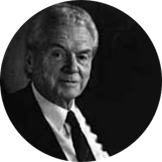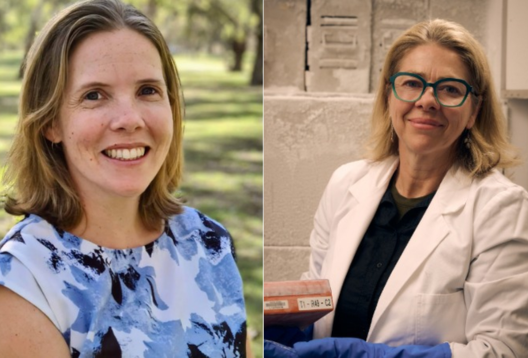Boden research conferences


Award highlights
- With the generous support of the late Dr Alex Boden AO FAA, the Academy established a series of small specialist conferences in the biological sciences to enable active research workers in rapidly advancing fields to discuss current advances and problems.
This award will not take applications after 2025. Please see the Workshop Series for the Academy's new program to support scientific workshops.
Boden research conferences were small specialist conferences in the biological sciences. They allow active research in rapidly advancing fields to discuss current advances and problems. If you are interested in holding a conference, please see the Workshop Series for the Academy's new program to support scientific workshops.
Past conferences
- 2026/27: Cell Cryobanking and the Role of Museums
- 2024/25: Using big data to build and test a model reef ecosystem; Protein folding: Mechanisms, health, and machine learning
- 2023/24: Advancing the science of precision and personalised nutrition: A pillar of the Decadal Plan for the Science of Nutrition
- 2020/21: Towards a representation of Eucalypt ecology & physiology in vegetation models: What makes Eucalypts distinct? (Cancelled)
- 2019/20: Evolutionary transformations in vertebrate history
- 2018/19: Ecological Surprises and Rapid Collapse of Ecosystems in a Changing World
- 2017/18: Origins and function of the animal metaorganism
- 2016/17: Emergence and function of complex shapes in self-assembly and biological cells.
- 2015/16 Boden research conference on comparative animal genomics, University of Adelaide
- 2014/15: Heme oxygenases 8th International Conference on Heme Oxygenases, BioIron and Oxidative Stress, Sydney, Australia.
- The 6th Asia and Oceania Conference on Photobiology, Citygate Central, Sydney. A 2013/14 Boden Research Conference.
- Bacterial biology: New insights on host-pathogen interactions University of Wollongong. A 2012/13 Boden Research Conference.
- 2011/12 Boden Conference. Cellular Microbiology—new aspects of host-pathogen interactions, the Shine Dome, Canberra. (PDF, 102 KB)
- 2010/11 Boden Research Conference. Genome biology of corals and their relatives, Magnetic Island.
- Metals in Biological Systems. 2009/10 Boden Research Conference, Shine Dome.
- Beyond the platypus genome, Boden Research Conference, Victor Harbor, South Australia, 23–26 November 2008
- Plant energy and water productivity, Boden Research Conference, Australian National University, Canberra, 18–20 September 2008 (PDF, 210 KB)
- Disulfide bonds and their role in protein folding and function, Boden Research Conference, Heron Island, Queensland, 29 July–2 August 2007
- Gene delivery and control (5th Australasian Gene Therapy Society Meeting), Boden Research Conference, The Shine Dome, Canberra, 18–20 April 2007
- 22 - 25 September 2006: Epithelial Stem Cells and Cutaneous Regeneration - Australasian Society for Dermatological Research
- 6 - 8 November 2005: Cellular Signalling and Human Disease - Australian Society for Biochemistry and Molecular Biology
- 8 - 13 September 2004: NKTOZ–the 3rd International NKT cell and CDI workshop - Australasian Society for Immunology
- 26 - 27 January 2004: Visual cortex: a variety of viewpoints - The Australian Neuroscience Society
- 5 - 8 October 2003: Epithelial-mesenchymal transitions - Australia & New Zealand Society for Cell & Developmental Biology
- 9–11 January 2003: Artificial photosynthesis - The Australian Society for Biophysics, the Australian Society of Plant Physiologists, the Australian Society for Biochemistry & Molecular Biology
- 8 - 12 April 2002: Developmental cutaneous biology - Australian and New Zealand Society for Developmental Biology and Society of Investigative Dermatology, USA
- 12 - 15 February 2002: Applied functional genomics of insect pests and insect vectors of disease - Australian Entomological Society and the Australian Society for Biochemistry and Molecular Biology
- 19 - 21 February 2001: Immune deviation and reproductive function - The Australian Society for Reproductive Biology and the Fertility Society of Australia
- 2–3 November 2000: Estrogens and male health - Endocrine Society of Australia
- 16–19 February 2000: The human skeleton - The Australian and New Zealand Orthopaedic Research Society
- 9–12 February 1999: Statistical methods for human genome analysis: application in the discovery of genes involved in complex human disease - Human Genetics Society of Australasia
- 24–28 January 1998: The epididymis: cellular and molecular aspects - Australian Society for Reproductive Biology
- 24–27 January 1998: Synaptic transmission - Australian Neuroscience Society
- 4–7 February 1997: Gene therapy - Australian Society for Biochemistry and Molecular Biology
- 30 January–2 February 1997: Retinal biology and retinal diseases - Australian Neuroscience Society
- 7–9 February 1996: Nitric oxide in the nervous system - Australasian Society of Clinical and Experimental Pharmacologists and Toxicologists
- 5 – 7 February 1996: The molecular and cellular biology of the extracellular matrix - Australia and New Zealand Society for Cell Biology
- 1 – 4 February 1995: Marsupial gametes and embryos - Australian Mammal Society and Australian and New Zealand Society for Cell Biology
- 10 – 12 February 1994: The role of DNA methylation in biological processes - Australian Society for Biochemistry and Molecular Biology
- 8 – 10 February 1994: Immunological control of fertility - Australian Society for Reproductive Biology and the Australian Society for Immunology
- 8 – 10 February 1993: Muscle afferents and motor control in health and disease - Australian Neuroscience Society
- 1 – 3 February 1993: Molecular systematics of gene families - Genetics Society of Australia
- 3 – 5 February 1992: Mammalian sex chromosomes and sex determining genes: their differentiation, autonomy and interactions in testis differentiation and function - Genetics Society of Australia and the Australian Society for Reproductive Biology
- 5 – 6 February 1991: The molecular analysis of bacterial pathogenesis - Australian Society for Microbiology
- 4 – 5 February 1991: Smooth muscle – recent advances - Australian Physiological and Pharmacological Society
- 7 – 9 February 1990: Neuropeptides - School of Physiology and Pharmacology, University of New South Wales and the Flinders Medical Centre
- 5 – 7 February 1990: Marine larval ecology: dispersal and recruitment processes - Australian Institute of Marine Science
- 15 – 17 February 1989: Expression of foreign genes integrated into animal plants and genes - Genetics Society of Australia
- 3 – 5 February 1989: Processing of information in mammalian auditory and tactile systems - Australian Physiological and Pharmacological Society
- 3 – 5 February 1988: Marsupial and monotreme genome organisation and evolution - Genetics Society of Australia
- 1 – 3 February 1988: Biomolecular design and development - Royal Australian Chemical Institute, Division of Medical and Agricultural Chemistry
- 11- 13 February 1987: Recent developments in muscle activation, contractility, and organization - Australian Physiological and Pharmacological Society
- 9 – 11 February 1986: Membrane: Fundamentals and Applications - Australian Society for Biophysics
- 5 – 7 February 1986: The systematic status of large flowering plant genera - Australian Systemic Botany Society
- 3 – 5 February 1986: Lactation and the physiological development of young mammals - Australian Society for Reproductive Biology
- 8 – 10 February 1985: Stream ecology in Australia - Australian Society for Limnology
- 6 - 8 February 1985: Limitations and potential for biological nitrogen fixation - Australian Society for Nitrogen Fixation
- 8 – 10 February 1984: Gene Transfers into plant & animal cells - Australian Biochemical Society Inc
- 5 – 7 February 1984: Chemical transmitters in the nervous system - Australian Neuroscience Society]
- 21 – 23 February 1983: Adaptive strategies of colonizing animal species - Genetics Society of Australia
- 19 – 21 February 1983: Evolution of hormone-receptor systems - Endocrine Society of Australia
- 3 – 5 February 1982: Pancreatic islet transplantation: potential for clinical treatment in insulin dependent diabetes - Australian Society for Immunology
- 1 – 3 February 1982: Salinity & plant production processes - Australian Physiological and Pharmacological Society
- 4 – 6 February 1981: Molecular genetics & plant improvement - Genetics Society of Australia
- 2 – 4 February 1981: Mammalian Vision - Australian Physiological and Pharmacological Society
One conference is funded annually. Conferences are usually of about two days duration with a membership of 20-30. A sum of up to $10,000 is provided. The supplementation of this sum is encouraged.
Organisers are asked to make an undertaking on acceptance of an offer of funding from the Academy to call their conference a Boden Research Conference and to advertise it as such.
Research conference applications are in two stages.
Organisers are invited to submit an online Expression of Intent (EOI), which should include:
- brief proposal (1 page)
- the aims, value and timelines of the conference, including an indication of support from the local scientific community and the importance for Australian science
- a tentative program, including expected number of attendee and any known or invited speakers
- a brief outline of anticipated budget
- provisional dates and venue
- names of the organisers
- how the diversity and inclusion of speakers and attendees will be actively considered and where possible, achieved.
Note that conferences that are one of a continuing series are less likely to gain support unless they specifically address a newly emerging theme or topic within the broader area of the series.
Expressions of Intent are short-listed by the awards committee Chairs in June, and the organisers of short-listed proposals are asked to provide a detailed application by 1 August. Full applications should include:
- expanded explanation of the aims and value of the conference (up to 1,000 words)
- a list of projected active participants
- a detailed program budget, including other sources of income
- at least one letter of support from the supporting organisation/society.
The final decision is announced in early November.
Venue hire of the Shine Dome is complimentary for up to two days where requested. Please note that AV equipment and technician, catering and caretaking are not included in the complimentary Shine Dome venue hire. Shortlisted applicants are requested to contact the Shine Dome Venue Coordinator for a quote as part of their application budgeting. At this stage, applicants should also check availability of proposed dates, and a tentative hold will be placed on these dates. Please note that this is not secured until the award is granted, but will increase the likelihood that the dates will still be available if/when awarded..
The organisers of approved conferences are responsible for the organisation of the conference, and the sponsoring scientific society/ies are responsible for the funding allocated to the conference.







